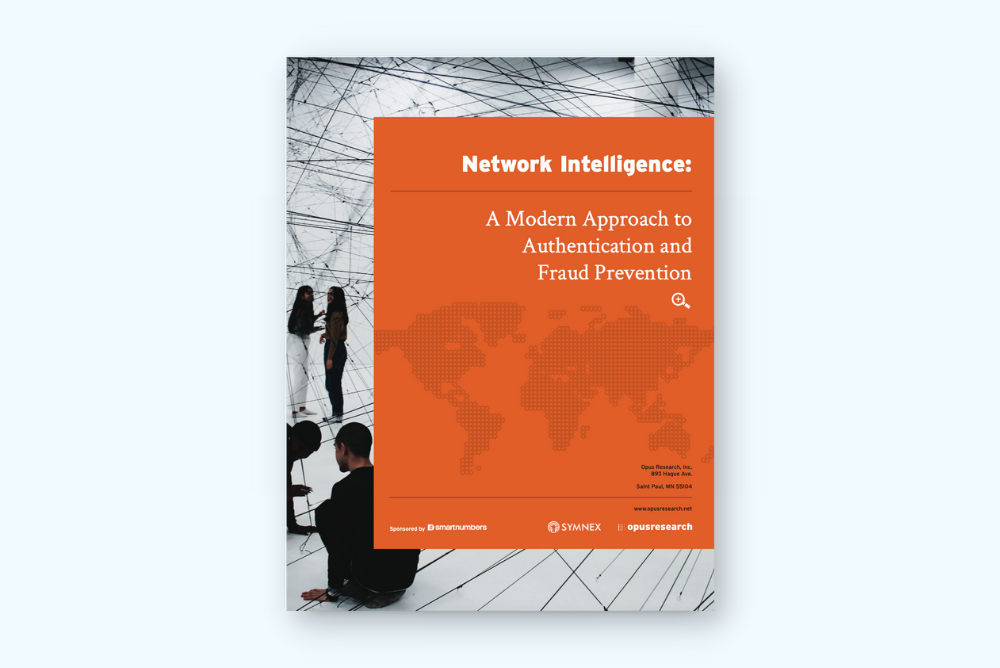Your call centre needs to be sure that a caller is who they say they are and proving their identity quickly is key to keep fraudsters out and deliver a smooth caller experience. That said, traditional authentication processes can be costly, difficult to use, and often provide little real security. So how can you ensure you’re keeping customer data safe without letting bad agents slip through your system?
Two words: Network Authentication.
Through machine learning and network signalling data, Network Authentication can identify atypical behaviour that might signal a fraudulent call and quickly send an alert to a call centre agent.
But a successful Network Authentication process is more than technology alone. It’s a group effort. And you need a well-rounded team built of representatives from various parts of your organisation to provide their expertise and support. Read on to find out how to build that team.
Ringing in contact centre operations
Responsible for the contact centre and its agents, Contact Centre Operations staff are the frontline to customer authentication. Their job is to verify customer identity, so it’s their responsibility to limit caller information available to agents and only expose information after a caller is thoroughly authenticated. These employees are familiar with the challenges and deficiencies of traditional security processes and should weigh in on any changes to the process.
After all, any improvements should be aimed at making their job easier, too. Thanks to the very nature of their role, contact centre operations teams have a clear understanding of current practices, how they work, and how they impact customers and agents. To evolve your security process and implement Network Authentication successfully, you’ll want a contact centre operator on your team.
Keeping customer experience front of mind
In today’s experience economy, you can’t let your security operations negatively impact how the customer interacts with your organisation. The caller has to be front of mind. If not designed and implemented correctly, additional layers of defence can introduce longer wait times and disrupt the caller journey. That’s why it’s key to bring teams like sales and marketing into your call centre security task force.
As you work to implement Network Authentication, you want to bear in mind how any process changes might affect the customer journey, so these team members will help you keep the balance between security and experience. With their finger on the pulse of what customers expect, their insight will play a vital role in dodging conflicts that might arise. In general, these teams’ understanding of the broader business can help guide how Network Authentication fits in.
Summoning your security experts
Familiar with the security challenges your current processes face, security team members know the ins and outs of how to keep your customers, their data and their funds, safe. At a time when everything happens digitally, customers inadvertently leave breadcrumbs around the internet that can leave them vulnerable to bad actors. This means traditional security processes like KBAs can be more easily bypassed by fraudsters, who can deceive call agents through social engineering as they have the answers they need on hand.
On the flipside, getting security right can be costly and doesn’t always ensure 100% protection. That’s why you need an expert on hand who’s able to investigate fraudulent instances, and will know how to implement a robust Network Authentication process as a result.
Turning up the technology
The technology team responsible for the contact centre platform will need to ingest the risk scores from the Network Authentication system. This ensures that legitimate callers can pass through streamlined authentication and are offered a broader range of self-service interactions in the IVR. It also means that fraud teams are able to quickly identify suspicious calls that need investigation.
Lining up legal and compliance
With tight customer privacy laws, following regulations is critical to ensuring your call centre stays compliant — especially as those who fail to comply can face millions in fines, making it essential to have a legal and compliance expert in your corner to back you up.The UK’s Ofcom lays down the law for preventing customer inconvenience, with top compliance areas including customer data, data access, customer consent, telephony misusage, while ensuring ethical behaviour.
And considering contact centre compliance laws and regulations are updated on a regular basis, engaging your legal and compliance team member ensures your call centre keeps up to date with regulation changes without the risk of penalties.
Building out your team
With the right team, you’re well on your way to building a robust Network Authentication solution. Doing so could save your contact centre an average of 20-40 seconds per call — all without relying on tedious authentication questions that only slows down your agents and creates an unsatisfactory customer experience.If you want to find out more about Network Authentication, how to implement it, and the team you need to do so, download our eBook: “Network Intelligence: A Modern Approach to Authentication and Fraud Prevention“.



